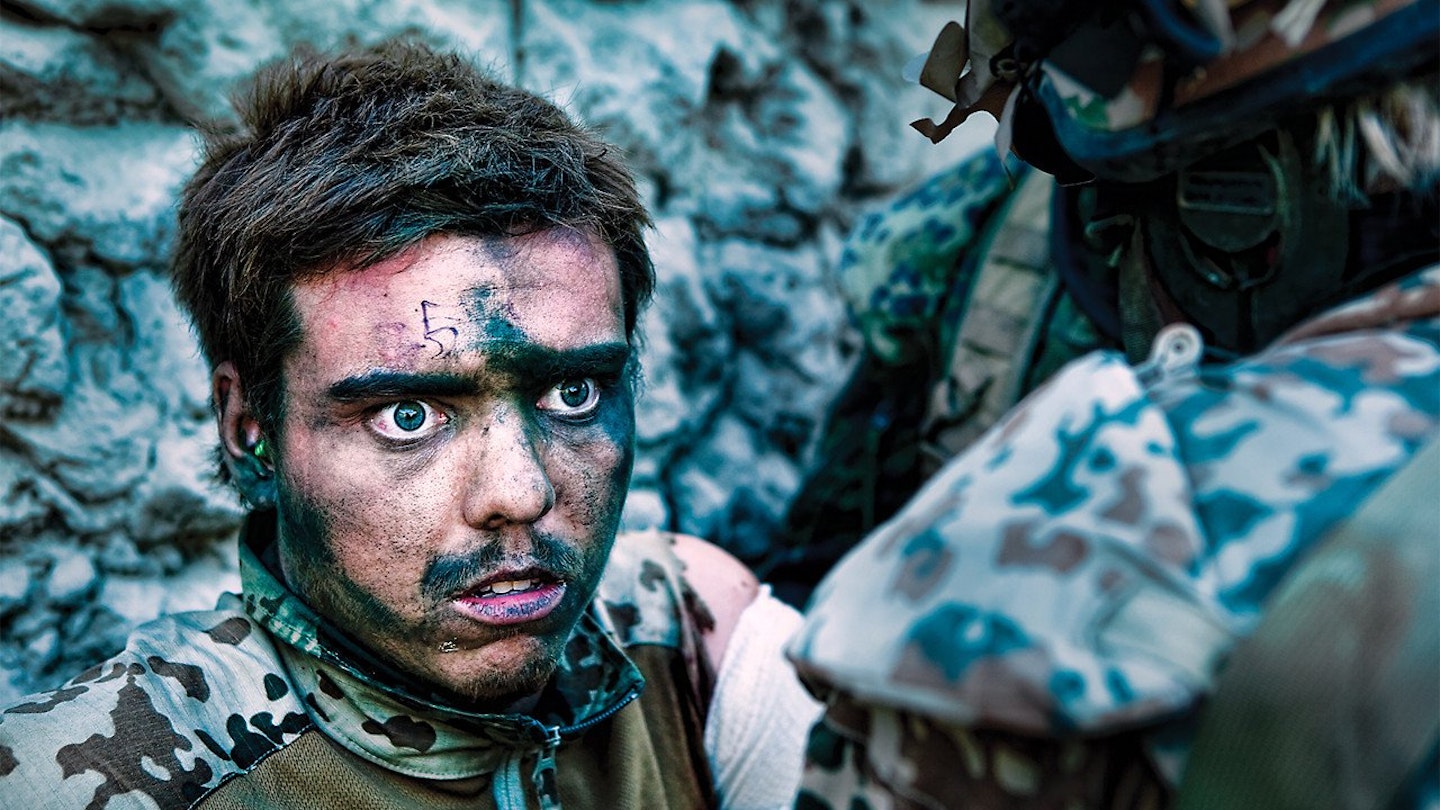At the midway point of this terrific Afghan war documentary comes an edit so heart-thumpingly visceral it almost stands comparison with Kubrick’s spinning bone from 2001. The cut captures the mix of grinding boredom and sheer terror that afflicts the soldiers of Helmand province’s Armadillo compound, a sandbagged Alamo that marks the frontline in the war with the Taliban. To say more would spoil it; suffice to say, you’ll never look at Xbox Black Ops the same way again.
These young Danes form the cast of director Janus Metz’s fly-on-the-wadi-wall documentary. Metz and his courageous/crazy cameraman Lars Skree spent six months with them as they patrolled a scrub-strewn corner of Helmand where the Taliban — “ninjas”, as they’re aptly nicknamed — are an ever-present, and lethal, foe.
That the film meant huge personal risk for Metz and Skree is apparent in every frame. The Taliban’s sobriquet is well-earned: they appear and disappear like vapour, planting IEDs under cover of darkness to await the unsuspecting feet of the Danes, and breaking cover during the day to spray Kalashnikov fire from behind village walls.
The firefights are so extraordinary they have an almost feature-film quality, with only the zip of bullets to remind just how real it all is. Like the Oscar-nominated Restrepo, the filmmakers eschew the bigger political picture to focus instead on the men themselves. “Your government has charted its political course,” they’re blandly told. “It’s your job to continue unhesitatingly.” They do just that, but the camera offers telling glimpses of their frustration and fear. News of comrades’ deaths elsewhere saps morale; the unspoken thirst for revenge later plays into a scene that caused national outrage when the film was released in Denmark.
It’s here that Armadillo comes into its own. The filmmakers refuse to let their affection for the men — from the shy, homesick Mads to bull-brave platoon leader Rasmus — gloss over the tough stuff. Crops are trampled, livestock maimed, and mortar rounds go astray, all culminating in one of the most ferocious scenes you’ll see this year. Have the rules of engagement been broken? Are these men heroes or villains? Should they even be there at all? But whatever you think of the war or even the men’s actions, it’s impossible not to care for them and the suffering Afghans equally. Among Armadillo’s edge-of-the-seat tensions and acute insights, this is surely its greatest achievement.

